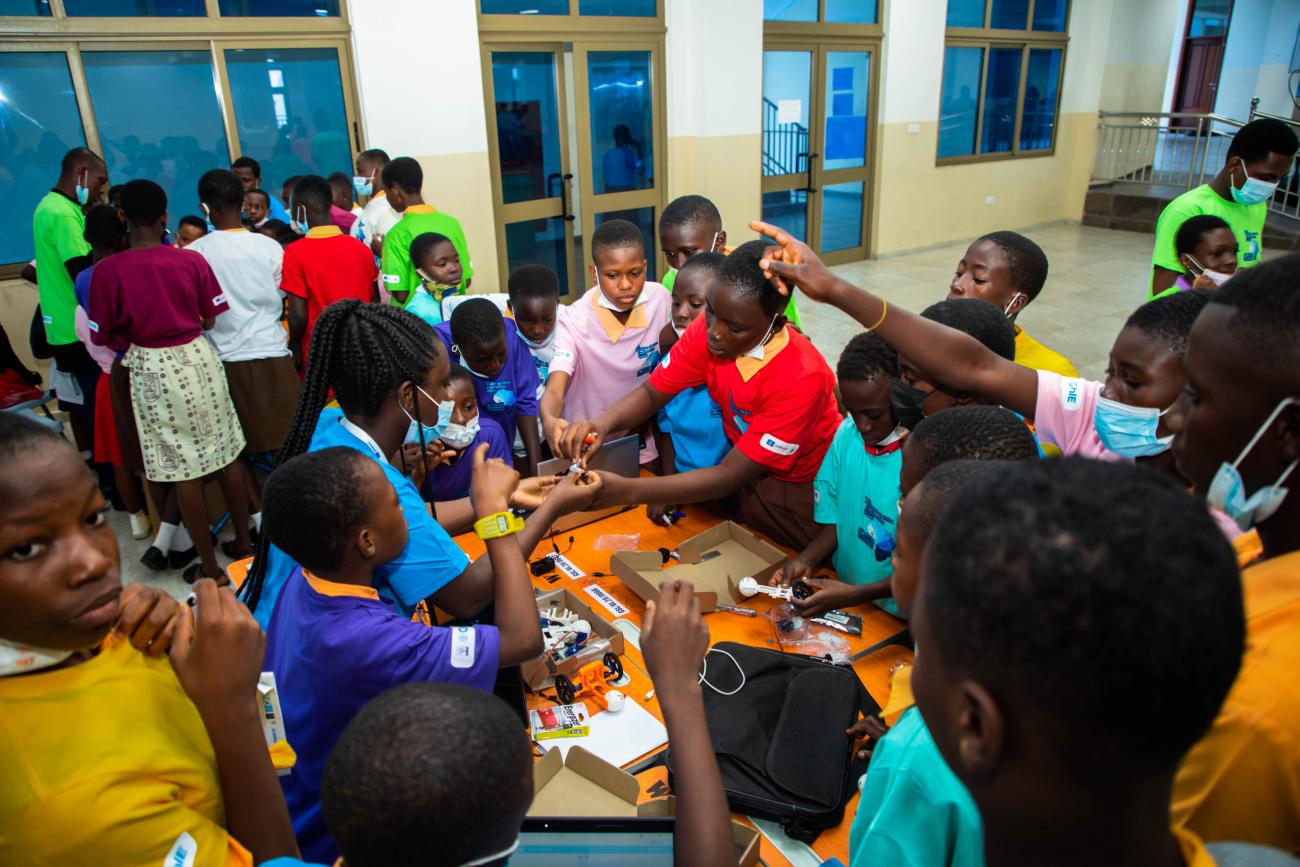UNESCO, in collaboration with the Ghana Institution of Engineering, has organized a hands-on session on Robotics and Artificial Intelligence for young people.
The half-day hands-on session on Robotics and Artificial Intelligence (AI) took place in Accra to culminate events for the 7th edition of the UNESCO African Engineering Week and 5th African Engineering Conference, which took place from October 4th to 8th 2021.
UNESCO provided 16 CogBots, AI-empowered educational learning kits, created in partnership with Google and CogLabs for the session.
Some 112 boys and 136 girls from 17 public primary schools, as well as their teachers and an official from the Ministry of Education participated in the session.
The students toured three workspaces that had been outfitted with the kits. The first workstation introduced the educational kit's components (such as 3D printed parts, microcontrollers, motors, wires, etc). Students at the second workspace were guided through a practical activity that involved constructing a robot from the kit's components and programming the robot using Scratch - an introductory visual programming language with a drag-and-drop interface. In the final workspace, fully assembled robots were demonstrated in action.
The workspaces were coordinated by six young engineers, three of whom were female and members of GhIE's Women in Engineering (WiNE) chapter. The coordinators were remotely trained on Robotics and Machine Learning (a subset of Artificial Intelligence) by UNESCO's Joan Nadal on October 7th.
Dext Technologies Ghana and JIC Robotics provided additional robotics resources and science sets at the session.
For most of the participants, this was their first exposure to educational robotics, and many expressed a desire to have robotics clubs in their schools to continue this experience.
As part of UNESCO’s mandate and in line with the Sustainable Development Goals (SDGs) 4 and 9, the UNESCO office in Accra intends to continue such engagements with young people to significantly increase their interest and participation in STEM (Science, Technology, Engineering, and Mathematics), strengthen the skills of Ghana's future engineering workforce, and inform stakeholders on how engineering contributes to meeting the UN SDGs.




